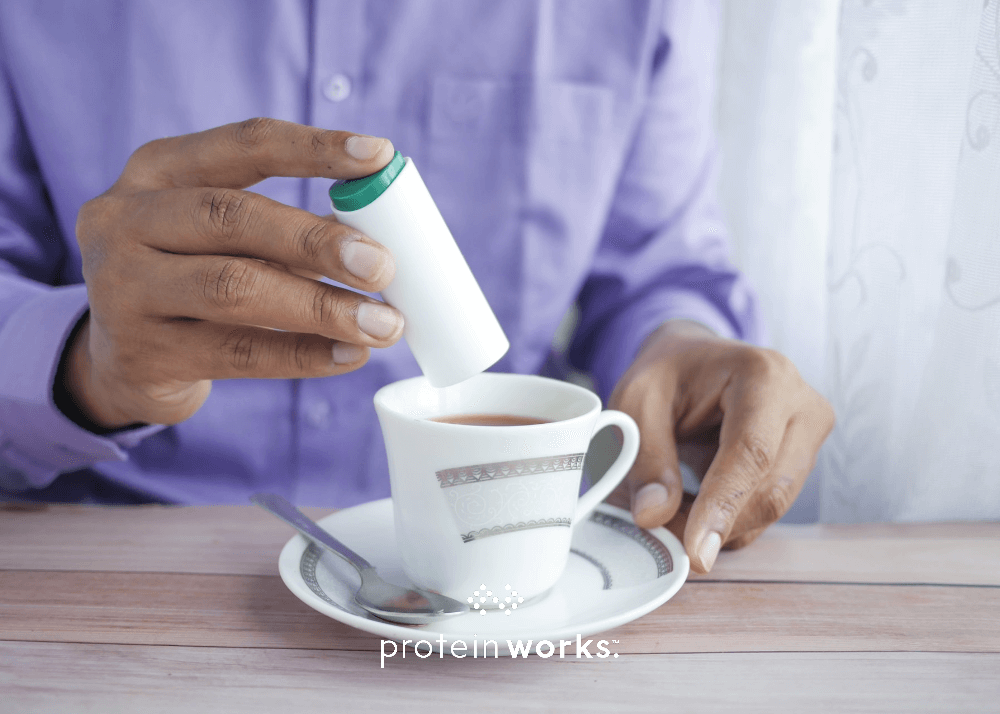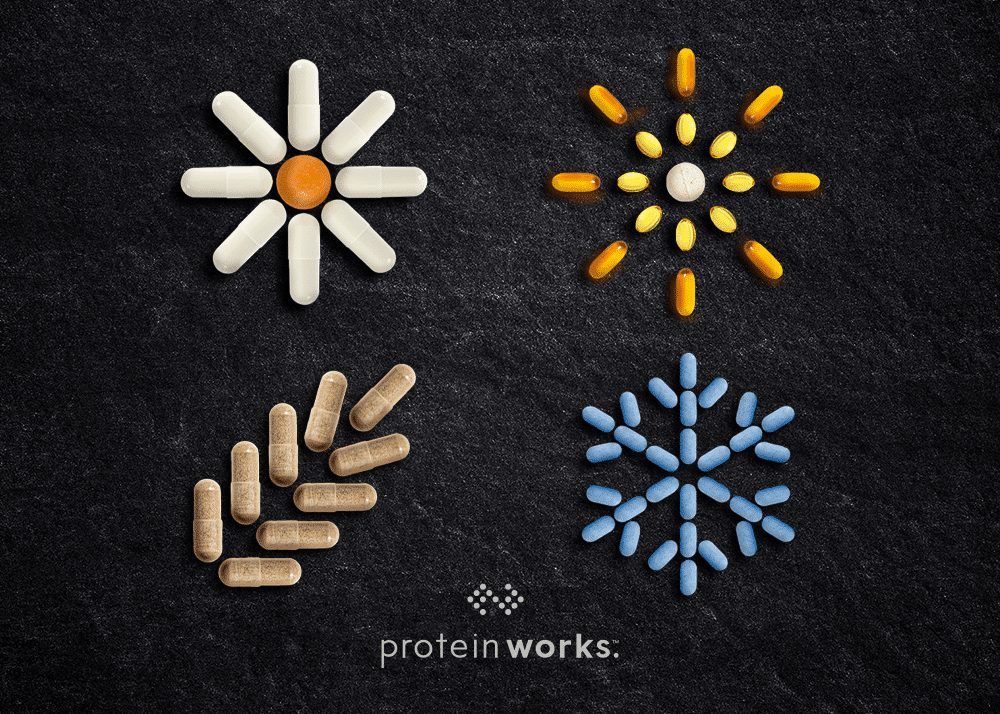
Are Artificial Sweeteners Bad For You?
In a world where health-conscious choices are becoming increasingly prevalent, the role of sweeteners in our diet has come under scrutiny. Artificial sweeteners, once hailed as a revolution in low-calorie alternatives, have sparked a fervent debate among health enthusiasts, researchers, and everyday consumers alike.
As we navigate the landscape of nutrition, understanding the ins and outs of these sugar substitutes becomes paramount. This blog aims to demystify artificial sweeteners, delving into their origins, types, benefits, potential concerns, and offering insights on how to make informed choices about their inclusion in your diet.
Keep reading to discover the truth about these intriguing additions to our modern-day pantry…
The Origins of Artificial Sweeteners
Artificial sweeteners, also known as non-nutritive sweeteners, were born out of the desire to provide a sweet taste without the caloric load of sugar.
The first of these, saccharin, was discovered in the late 19th century and gained popularity during times of sugar shortages.
Since then, a myriad of alternatives has emerged, including aspartame, sucralose, and steviol glycosides (derived from the stevia plant). These sweeteners have found their way into a wide array of products, from diet fizzy drinks to sugar-free desserts.
Are Artificial Sweeteners Safe?
Regulatory agencies in the UK, including the Food Standards Agency (FSA) and the European Food Safety Authority (EFSA), have extensively reviewed scientific evidence and deemed artificial sweeteners like aspartame, sucralose, saccharin, and acesulfame potassium safe for consumption within established acceptable daily intake (ADI) levels. [1]
Why the Controversy?
In May 2023, the World Health Organization (WHO) has recently released updated guidelines on the use of non-sugar sweeteners, and it has sent ripples through the nutrition world. For those of us committed to a healthy lifestyle, this development challenges the way we think about sweeteners and their role in our fitness journey. Let’s dive into the details of these guidelines and how they could impact our approach to nutrition.
Non-sugar sweeteners, often hailed as low-calorie or zero-calorie sugar alternatives, have gained immense popularity in the health and fitness industry. These sweeteners, including familiar names like aspartame, sucralose, saccharin, and steviol glycosides (found in stevia), promise the sweetness we crave without the calories we aim to avoid.
Yet, concerns have been raised about their long-term effects. Some studies suggest potential links between non-sugar sweetener consumption and metabolic disruptions, changes in gut health, and increased cravings for sweets. Additionally, there’s evidence that the intense sweetness might lead to a reduced sensitivity to sweetness, driving us to seek even sweeter options.
The WHO’s New Perspective
In response to these concerns, the WHO has unveiled specific guidance regarding the use of non-sugar sweeteners. The organisation advises against relying on these sweeteners for weight control and lowering the risk of non-communicable diseases (NCDs). This recommendation stems from a thorough review of the scientific evidence, aimed at providing clearer direction for both fitness enthusiasts and healthcare professionals.
The WHO emphasises that while non-sugar sweeteners may offer a short-term reduction in calorie intake, their long-term effects on metabolism, cravings, and overall dietary patterns remain uncertain. Instead, the organisation urges individuals to embrace a more holistic approach to health and fitness, focusing on a balanced diet, regular exercise, and maintaining a healthy lifestyle.
Is Sucralose Bad For You?
Another popular sweetener used in many supplements and foods is sucralose.
Sucralose is a non-nutritive sweetener that is most commonly found in Splenda and many low-calorie flavoured foods such as protein powders/bars, yoghurts, diet drinks, Walden Farms products and other low-calorie items.
Mann et al. (2000) observed the effects of giving sucralose to humans, the trial observed the effects of consuming 125mg for 3 weeks, 250mg for 4 weeks and 500mg of sucralose for 5 weeks. The researchers found no difference between the sucralose and placebo group [3]. Further, a recent review by Berry et al. (2016) specifically examined whether sucralose had a link to carcinogenicity; It found no evidence that sucralose has toxic or carcinogenic effects [4].
Based on the evidence, the FDA has approved a daily intake of 5mg/kg bw/d. One packet of Splenda contains 12mg of sucralose; meaning a 150lb person could have 28 packets of Splenda per day. Similar to aspartame, it seems that sucralose will not be harmful when consumed within normal ranges and safe moderation.
As with most things in nutrition, moderation is key. Incorporating a variety of foods and sweeteners into your diet, including natural options like fruits and occasional use of artificial sweeteners, can contribute to a balanced approach to nutrition. If you have specific health concerns or conditions, consulting with a healthcare professional or registered dietitian can provide personalised guidance on sweetener consumption.
The Take Home
While the WHO’s new guidelines may challenge our current understanding, they emphasise the importance of considering the broader impact of our dietary choices. Relying solely on non-sugar sweeteners as a cornerstone of our fitness journey may not provide the comprehensive health benefits we seek.
Instead, we’re encouraged to adopt a balanced and mindful approach to nutrition. This includes prioritising whole, minimally processed foods, being mindful of portion sizes, and considering our overall caloric intake. Additionally, it’s essential to factor in our individual preferences and cultural practices when making dietary decisions.
Artificial sweeteners can be a helpful tool in reducing sugar intake when used in moderation, especially for those with specific dietary needs or health conditions. However, excessive consumption may lead to a preference for overly sweet flavours, potentially diminishing the enjoyment of naturally sweet foods like fruits.
It’s crucial to be mindful of the psychological impact of artificial sweeteners, as they may increase the desire for sweet foods, potentially impeding efforts to adopt a healthier diet.
Ultimately, the role of artificial sweeteners in your diet depends on individual needs, preferences, and health goals. Striking a balance and making informed choices allows you to utilise them effectively in reducing sugar intake while maintaining a healthy diet.
The WHO’s updated guidelines on non-sugar sweeteners mark a significant milestone in evidence-based nutrition. While these sweeteners have their place, they should not be the sole focus of our fitness journey. A well-rounded approach to health, encompassing a balanced diet, regular exercise, and a healthy lifestyle, remains the key to achieving and maintaining optimal fitness levels. By prioritising whole foods and mindful nutrition, we can take proactive steps towards reaching our fitness goals.
Don’t miss out on our range of Protein Shakes or Food and Drink. We also have lots of advice, tips and information about Nutrition in our archives.
Disclaimer: Please be aware that this site doesn’t provide specific medical advice. Please verify any cited sources as this blog merely serves as a source of information. Speak with your own doctor about any issues or personalised treatment options. In no way whatsoever are the opinions stated on this site meant to replace the advise of professionals. Any organisation that the author is connected to in no way previews, commissions, or otherwise endorses the blog. The opinions expressed in this blog most likely reflect some of the author’s own beliefs held at the time the blog was written and could vary over time, especially if new information is discovered.
References
[1] https://www.food.gov.uk/safety-hygiene/food-additives
[2] Peters JC, Wyatt HR, Foster GD, Pan Z, Wojtanowski AC, Vander Veur SS, Herring SJ, Brill C, Hill JO. The effects of water and non-nutritive sweetened beverages on weight loss during a 12-week weight loss treatment program. Obesity (Silver Spring). 2014 Jun;22(6):1415-21. doi: 10.1002/oby.20737. PMID: 24862170
[3] Roberts A, Renwick AG, Sims J, Snodin DJ. Sucralose metabolism and pharmacokinetics in man. Food Chem Toxicol. 2000;38 Suppl 2:S31-41. doi: 10.1016/s0278-6915(00)00026-0. PMID: 10882816.
[4] Berry C, Brusick D, Cohen SM, Hardisty JF, Grotz VL, Williams GM. Sucralose Non-Carcinogenicity: A Review of the Scientific and Regulatory Rationale. Nutr Cancer. 2016 Nov-Dec;68(8):1247-1261. doi: 10.1080/01635581.2016.1224366. Epub 2016 Sep 21. PMID: 27652616; PMCID: PMC5152540.






No Comments yet!